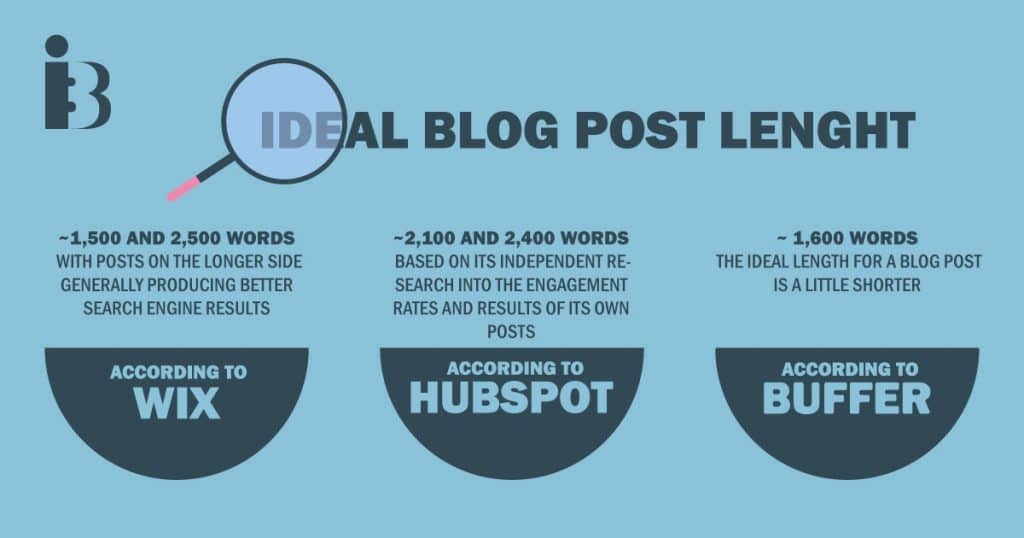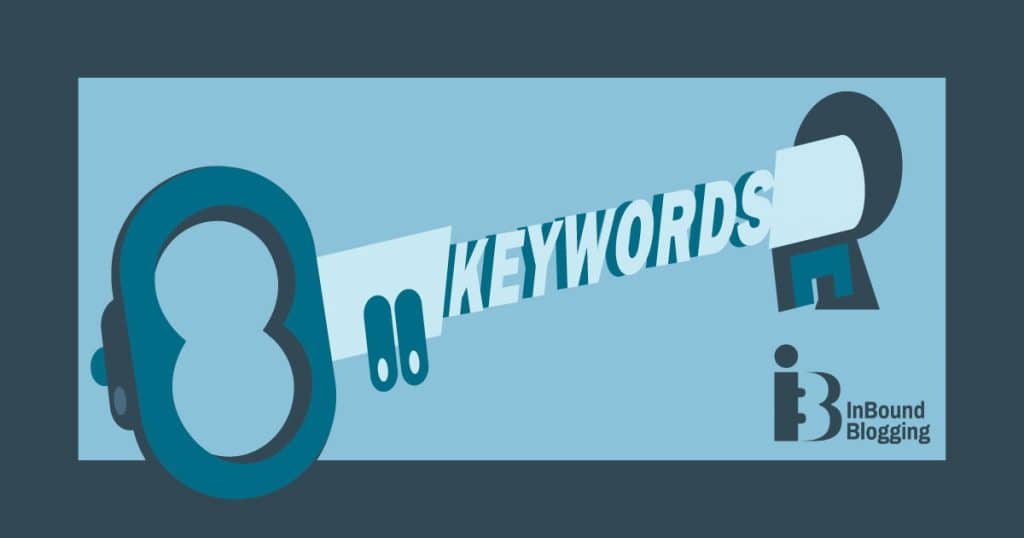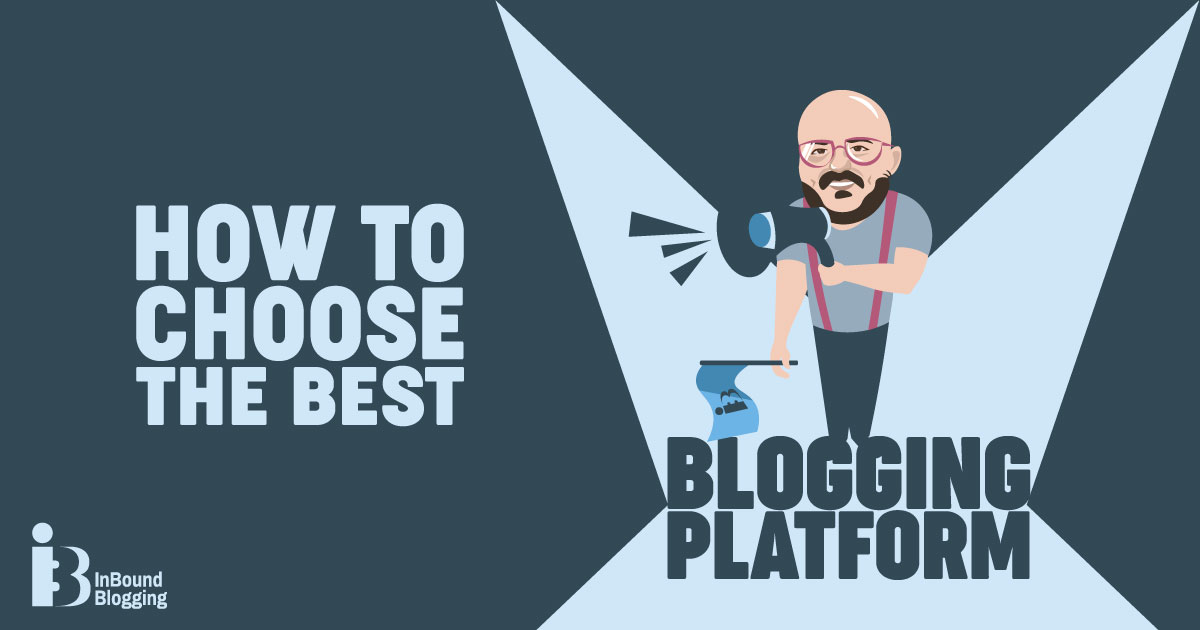How long should a blog post be? It’s a reasonable question for any content writer to ask. If you’re producing a blog to improve your website’s chances of ranking, generate engagement, or capture new leads, you need at least a basic idea of how many words to aim for.
Unfortunately, there isn’t a straightforward universal answer to this question.
Ask an editor how long a blog post should be, and they’ll usually tell you the same thing: “as long as it needs to be”. That’s because different types of posts, with different purposes, require unique levels of depth. A brief news article about a recently-released product shouldn’t be the same length as a website pillar page. Every piece of content is different.
So, how do you determine how many words to include in your blog post?
How Many Words Should a Blog Post Be? The Data
First, it’s important to note there’s no one-size-fits-all length for the ideal blog post. Writing a 2000-word post won’t guarantee you more engagement or shares, just as writing a 4000-word post won’t ensure you reach the top of the search results.
But what does the data have to say?
Countless website leaders and marketing experts have conducted studies into the ideal length for a blog post in the modern landscape. Unfortunately, everyone seems to have different results:

- Wix says the ideal blog post is between 1,500 and 2,500 words, with posts on the longer side generally producing better search engine results.
- HubSpot says the ideal blog length is around 2,100-2,400 words, based on its independent research into the engagement rates and results of its own posts.
- According to Buffer, the ideal length for a blog post is a little shorter, usually around 1,600 words.
While the numbers here differ slightly, they do provide a useful insight: the best blog posts today are generally the ones which include more content. In fact, IsItWP found the average blog post length increased by 42% from 2014 to 2018.
So, does that mean you should create the lengthiest blog posts possible without thinking about your audience? Absolutely not. While people do appreciate longer content these days, they also have shorter attention spans, and are more discerning about what they choose to read online.
Because of this, the answer to “how long should a blog post be” actually depends on a number of factors, including your target audience, the type of content, and your goals.
The Optimum Blog Post Length: Content Type Matters
When determining how long a blog post should be for your website, the first thing you’ll need to think about is what kind of blog you’re going to create. There are various forms of “blog post” in the digital world today, including micro news posts, short-form content, and pillar pages.
So, how long should each type of blog post be?
- Short-form content: Around 600-750 words: Short form content is less common these days , because it has a lower chance of ranking with search engines. They’re good for releasing short snippets of information, such as updates and news reports. If you know your audience is looking for access to quick information, it might be better to aim for a short post.
- Explanatory content: Explanatory posts are essentially “What is” posts. They answer a specific question, such as “What is SEO?”, or “How long should a blog post be?”. These posts don’t have to have a set word count, but they’re usually between around 1,300 and 1,700 words – giving the writer enough space to cover everything the reader might need to know about the topic. Think of them as “mid-length” blog posts.
- How-to content: How-to content is a different kind of explanatory post, which involves giving step-by-step instructions on how to do something. Once again, the length of these posts can vary depending on how much information you need to cover. However, because they focus more on giving comprehensive, actionable advice, they tend to be a little longer. Most how-to posts are around 1700 to 2100 words.
- Listicles: Listicles are one of the most popular forms of content because they require very little effort to consume. Users can also scan through the content to find the specific information they need. To be as comprehensive as possible, a listicle needs to be around 2,300 to 2,600 words, and include as much detailed information as you can find. Avoid listicles made up mostly of images, as they can seem like click-bait.
- Pillar pages: Pillar pages are comprehensive blog posts which cover a large topic in depth. Often, they allow you to delve deeper into the various different aspects of a topic, while linking to different internal pages on your website. Pillar pages are usually around 4,000 words minimum, and can even be much longer.
How Long Should a Blog Post Be? The Importance of Goals and Readers

The type of blog you’re planning on writing can give you valuable guidance about how long the piece should reasonably be. However, it’s also important to think about other factors too, such as your keyword requirements, how much depth to go into, and your goals.
Here are some of the most important factors to consider when choosing the ideal blog length:
- How comprehensive will the piece be? Depending on the blog topic you choose to write about, there are likely to be various expectations on how comprehensive the piece should be. A listicle about the best hotels worldwide will likely be more in-depth than a blog about a new feature you’ve introduced for your SaaS software.

- Who is your target audience? Different audiences also have different requirements when it comes to consuming content online. A B2B buyer searching for information about which product to purchase will likely need a lot more information than someone looking for quick entertainment. Get to know your target audience, and put yourself in their shoes. What kind of content do they share and read most often?
- What goals are you trying to achieve? Some blog posts are intended to inform, others to entertain, and others to generate leads. According to HubSpot, the ideal length of a blog post intended to generate leads is around 2,500 words. However, if all you want to do is provide your customers with some basic information, like what your new products are going to look like for the latest season, your post might be shorter.
- How long are the competing blog posts? If you want to boost your chances of ranking on search engines, and impressing your audience, you need to keep up with your competitors. If your customers can already read a much more comprehensive blog post on the same topic from another brand, they’re less likely to visit your website. If your post isn’t longer than the options offered by your competition, it should at least offer new information.

- Which keywords are you targeting? Placing keywords in your blog posts is an important way to make sure you can rank on search engine result pages. However, your blogs can’t simply be cluttered with keywords. If you have a number of words and long-form phrases to rank for, you’ll need to distribute them through the post carefully. This will often mean writing a longer post.
How Long Should a Blog Post Be for SEO?
One of the most common reasons why companies agonize over the ideal length for their blog posts is that they know how important length is to ranking online. Ultimately, there’s no specific advice from Google on how long your post needs to be to rank. However, SEO experts like Yoast recommend it should never be any shorter than 300 words.
Despite this, many marketing professionals agree longer blog posts do generally have a higher chance of ranking. There are a few reasons for this. When your text is longer, it gives Google more information on what it’s about. There are more opportunities to showcase your focus keyword or phrase. And you can include a lot of related and contextual terms too.
A longer blog post makes it easy to distribute SEO strategies throughout your content as effectively, without detracting from the quality. At the same time, longer posts are generally more effective at keeping your customers on the page for longer, increasing your engagement rate and reducing bounce rates – which benefits your SEO rankings.
A long post can help you to rank for multiple versions of a long-tail key phrase and strengthen your chances of connecting with your target audience through engaging input and insights. You can also use longer posts to link internally to other pieces of content, which further boosts rankings.
Additionally, longer posts are often more effective because they demonstrate knowledge and authority. If a page doesn’t have a lot of keywords, it’s more likely to be defined as “thin content”. This means Google will be less likely to recommend your pages to searchers.
I wrote an article about how blogging helps SEO—check it out.
Deciding How Long a Blog Post Should Be Isn’t Easy
So, what’s the definitive answer to “how long should a blog post be”? Simply put, there isn’t one.
The research shows extensive, lengthy articles are more likely to rank and generate results with search engines, thanks to their ability to incorporate keywords and other SEO strategies. We’d recommend posts of over 1,500 words where possible to increase your chances of results.
However, writing a long post won’t guarantee success if you don’t take the preferences of your audience into account too. Ultimately, the key to writing a great blog post is thinking carefully about what you want to accomplish, what you’re going to write, and who you’re writing for.
Produce highly valuable, engaging content, optimized for both people and search engines, and you’re more likely to generate results, no matter your word count.



